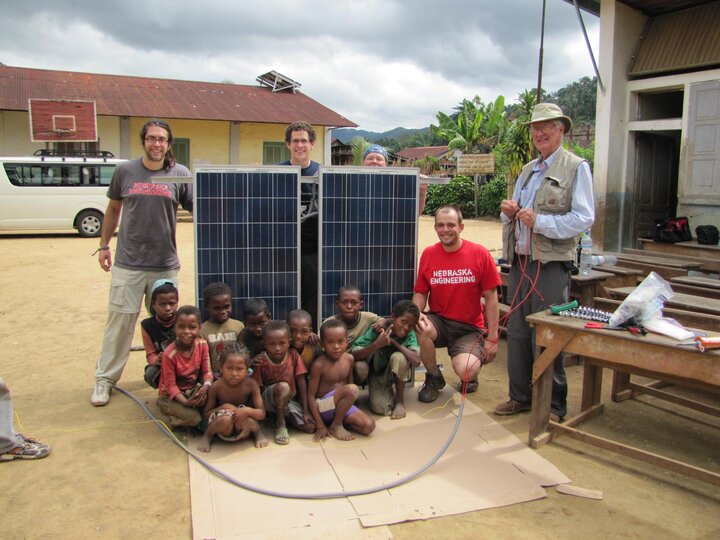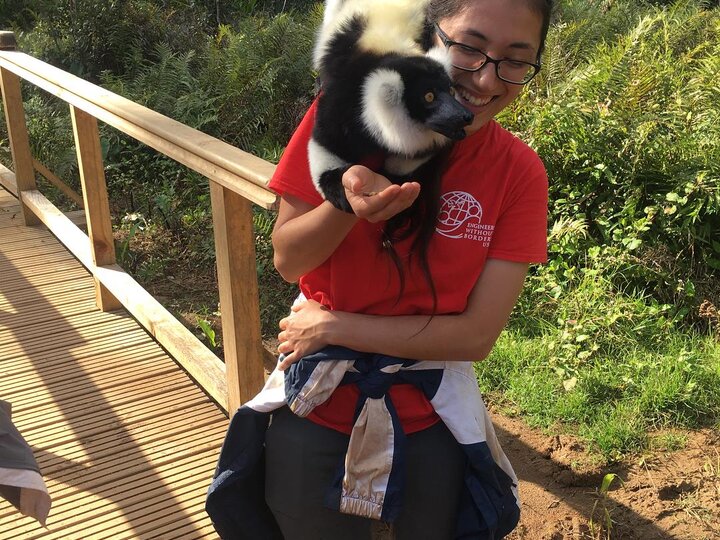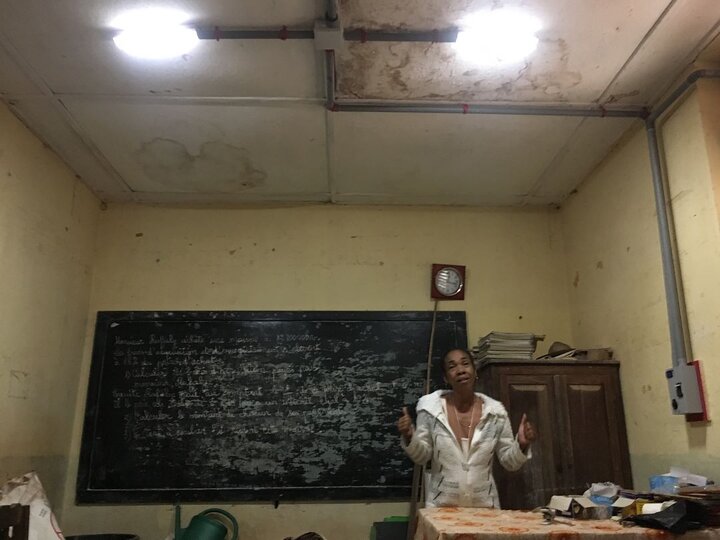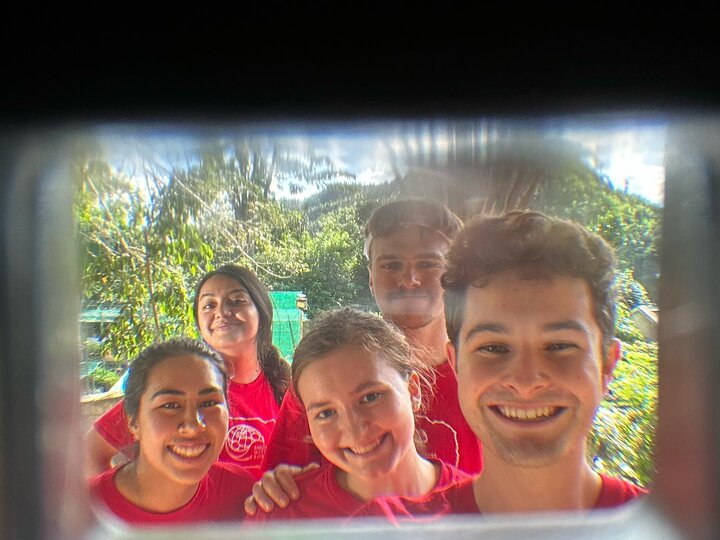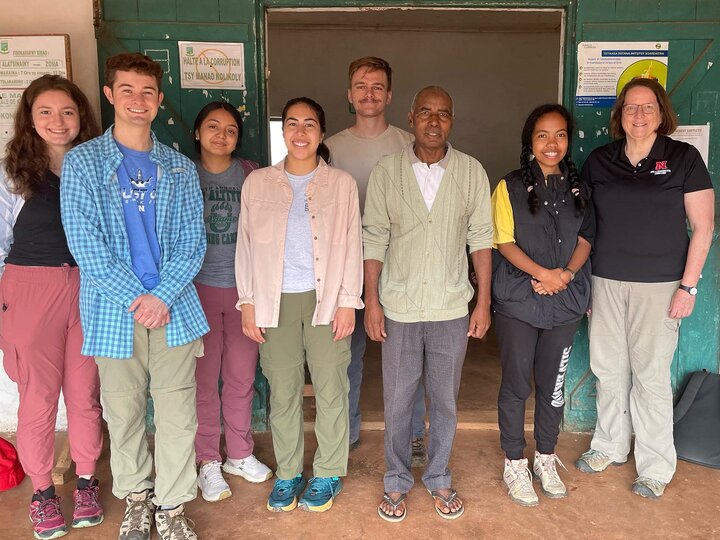Student Volunteers Needed
Madagascar Team is currently looking for more student volunteers! Get experience working on an engineering project and make an impact!
Background
In 2010, through a partnership with the Madagascar Biodiversity Partnership, the students of EWB-NU were introduced to the people of Kianjavato, Madagascar. Kianjavato is a rural commune in the southeastern region of Madagascar and is home to more than 10,000 people. When we met with the community, one of their biggest concerns was electrification.
The Need
Kianjavato is many miles from the nearest power grid. There is no central electricity, and the homes that do have solar panels have barely enough power for a lamp and a single smartphone. Providing electricity was cited by the people of Kianjavato as a priority during our assessment trip in May 2010. The best place to begin was by providing electricity to power lights in schools. Madagascar is one of the poorest nations; the average income is less than $1 per day. Currently, electricity is supplied by a few gas generators. With gas at $6/gallon in Madagascar, power is essentially non-existent in Kianjavato.
Our Progress
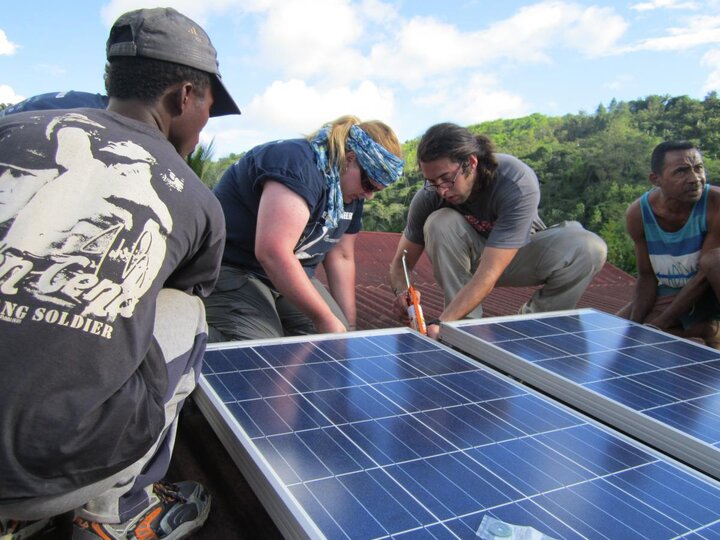
Our chapter has been working with parents, students, and the local government since 2011 to address the power issue by developing plans to install small solar power systems at schools to provide power for lights and computers. In May 2012, our team installed our first solar power system for lights in one classroom at the main primary school in Kianjavato. Since then, we have completed 7 additional installations in 6 schools in Kianjavato. These systems are used for evening classes for students studying for examinations, as well as for adult literacy classes.
We have also been continuously monitoring previously installed systems to improve our designs and implementation. Additionally, our team has been developing a universal Operations and Maintenance manual to provide a comprehensive guide for these solar power systems to the community. The challenges of developing this project have been immense, but we are committed to giving the people of Kianjavato not only the systems they desire, but also the expertise to continue to develop these systems on their own
Madagascar Facts
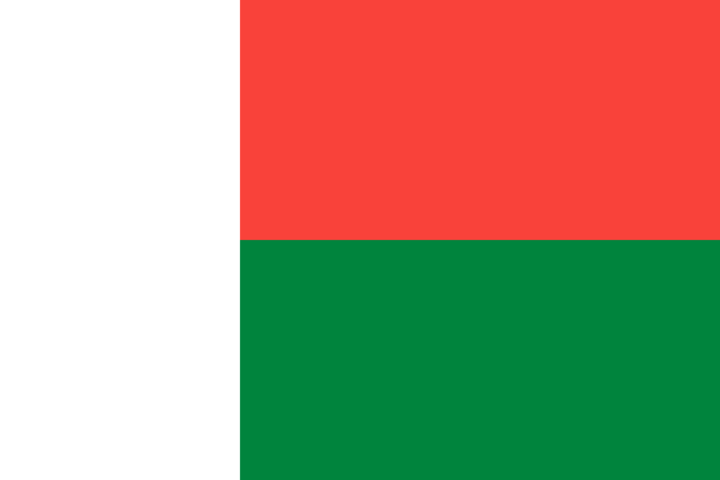
- Located off the southeast coast of Africa
- World's fourth largest island
- About 3 times bigger than Nebraska
- Over 26 million people live there; more than half of them are younger than 18 years old
- 77% of households live below the poverty level
- 75% of the population lives on less than $1.90 per day
- Only 13% of the population has access to electricity
- 80% of the animals and plants on Madagascar live nowhere else
- 90% of the original forest has been destroyed

